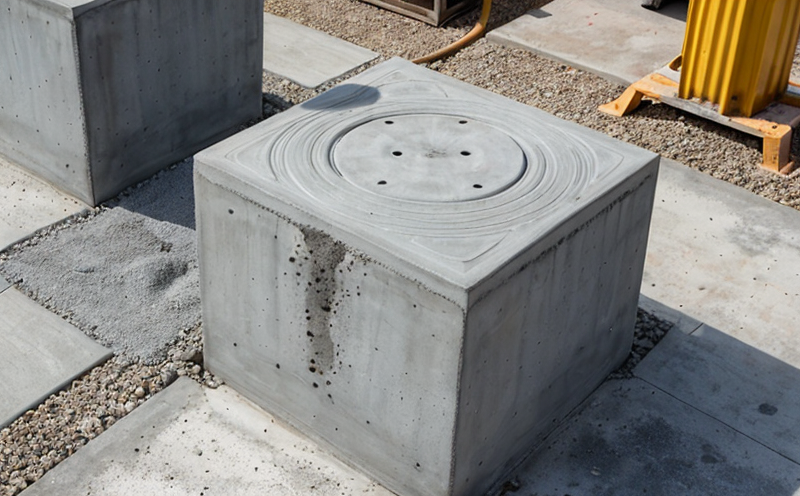Concrete & Cement Testing
The integrity and durability of concrete and cement-based materials are critical to the success of any building or infrastructure project. Our comprehensive testing services ensure that these materials meet the highest quality standards, comply with relevant codes and regulations, and perform optimally in real-world conditions.
Our team of experts uses advanced instrumentation and cutting-edge technology to conduct a wide range of tests on concrete and cement samples. From initial raw material analysis to final performance testing, we provide detailed reports that inform critical decisions throughout the construction process.
In this section, we will delve into the specific tests performed for concrete and cement, the instruments used, and the standards against which these materials are evaluated. This knowledge is essential for quality managers, compliance officers, R&D engineers, and procurement professionals who need to ensure that their projects meet the necessary requirements.
Our testing services cover a broad spectrum of applications in building and infrastructure construction. Whether you are dealing with structural concrete, shotcrete, or other cement-based materials, our team is equipped with the expertise and resources needed to provide accurate and reliable test results.
Applied Standards
| Standard | Description |
|---|---|
| ASTM C170-18 | Test Methods for Sampling and Testing Hydraulic-Cement Paste, Mortar, and Concrete |
| ISO 23196:2015 | Determination of the compressive strength of hardened concrete cylinders |
| EN 12370:2014 | Durability testing of concrete in marine and other severe exposures |
| ASTM C67-19 | Sand, gravel, and stone for concrete—Specification |
| EN 12350:2018 | Determination of the water requirement of fresh concrete (flow) |
Customer Impact and Satisfaction
- Improved project compliance with local and international regulations.
- Enhanced material quality leading to longer-lasting structures.
- Reduced risk of defects through early detection of issues during construction.
- Cost savings from avoiding unnecessary rework due to substandard materials.
Environmental and Sustainability Contributions
The quality of concrete and cement is not only crucial for the longevity of buildings but also plays a significant role in environmental sustainability. By ensuring that these materials meet stringent testing standards, we contribute to reducing waste and improving energy efficiency.
Our testing services help builders and engineers make informed decisions about material selection, which can lead to more sustainable construction practices. For instance, using high-performance concrete (HPC) or recycled aggregates in structures not only enhances durability but also reduces the environmental impact by minimizing raw material extraction.





